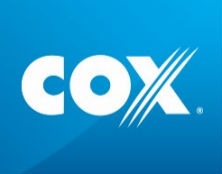Last year Cox settled its piracy liability lawsuit with music rights company BMG.
While the company hoped that this would be the end of its copyright woes, the next legal battle was already being prepared.
This time, the ISP was up against 53 music companies, including Capitol Records, Warner Bros, and Sony Music.
The rightsholders complained that Cox categorically failed to terminate repeat copyright infringers and that it substantially profited from this ongoing ‘piracy’ activity. All at the expense of the music companies and other rightsholders.
A year later the case is heading to trial where Cox will have to defend itself once again. However, not before some final issues are resolved.
In August, both Cox and the music companies requested summary judgments on several crucial issues. Among other things, the ISP requested a ruling that it’s not vicariously liable for copyright infringement.
This week US District Court Judge Liam O’Grady ruled on the requests. He decided to deny most, stating that these issues will be resolved at trial. The Judge did, however, issue a ruling on whether Cox had “knowledge” of the allegedly pirating customers.
The music companies asked to have this issue resolved before trial. It is a crucial question, as it determines whether the ISP can be held contributorily liable for pirating subscribers or not.
Cox first argued that the notices failed to identify many copyrighted works. For example, in some cases, the music companies only identified one song from a torrent that contained more works. In addition, the notices only highlighted infringements of sound recordings, not the compositions.
The court, however, waved away this defense and concluded that the notices are certainly specific enough when it comes to specific sound recordings. They include a title, timestamp, date, notice id, IP-address, and hash, among other things.
“Based on the level of detail included in the notices directed at Cox and its subscribers, there is no doubt that Defendants had more than just ‘generalized knowledge’ of infringement,” Judge O’Grady writes.
“Thus, the Court finds as a matter of law that there is no genuine issue of fact regarding the sufficiency of the RIAA notices in this case, and that they can support the knowledge element of a contributory infringement claim,” he adds.
The second question is whether these notices, which the RIAA sent, can lead to the conclusion that Cox had knowledge of the infringements in a legal sense. The ISP denied this, but according to the court, it’s clear that the notices are sufficient.
“It would be farcical to argue that Cox had no knowledge of the hundreds of thousands of notices it received indicating infringement for the works in suit,” Judge O’Grady writes.
“The notices were sent to an email address Cox created for the very purpose of receiving this information, and were processed by a corporate department dedicated to abuse and security for Cox.”
Finally, Cox also argued that it can’t be liable for alleged infringements that occurred through business subscribers, as it can’t identify individual users of these businesses. However, the court ruled that there is no ground to exclude business subscribers at this point.
All in all, it is clear that Cox had specific enough knowledge of pirating subscribers to hold it contributorily liable. However, to do so, a jury must also conclude that the ISP contributed to or induced the infringements. That will be decided at trial.
In addition to the “knowledge” question, Judge O’Grady also ruled that the music companies own or control the exclusive rights to all works that are part of the case, something Cox contested.
With these issues ‘resolved’ the case is yet another step close to trial, which is currently scheduled to take place next month.
—
A copy of US District Court Judge Liam O’Grady’s memorandum opinion and order is available here (pdf).







